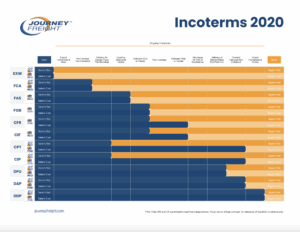
Anticipated Transformations in the Transport Industry in 2024
The transport industry stands at the cusp of a transformative era in 2024, driven by a confluence of technological innovations, changing consumer dynamics, and global economic shifts. As we delve into the anticipated changes for this year, data-supported insights shed light on the imminent revolution set to redefine how people and goods are transported.
The most pronounced trend in the transport sector this year is the remarkable acceleration of electrification. Electric vehicles (EVs) have garnered substantial momentum, with statistics revealing a surge in global EV sales. According to the International Energy Agency (IEA), electric car sales surpassed 3 million in 2021, representing a year-on-year increase of 41%. Governments worldwide are responding to this surge by implementing aggressive policies to incentivize EV production and usage, further propelling the shift toward cleaner and more sustainable transportation.
Major players in the automotive industry are investing substantially in research and development, leading to advancements in battery technology. According to BloombergNEF, the cost of lithium-ion batteries, a crucial component for EVs, has plummeted by 89% over the past decade. This reduction in costs, coupled with enhancements in battery capacity and charging infrastructure, is making electric vehicles increasingly accessible and practical for consumers, contributing to a substantial reduction in carbon emissions.
–
The dream of fully autonomous vehicles is gaining traction in 2024, supported by tangible progress and testing data. Companies such as Tesla, Waymo, and Uber are actively deploying fleets of autonomous vehicles in select cities. The number of autonomous vehicle testing permits issued by regulatory bodies is indicative of this upward trajectory. According to the California Department of Motor Vehicles, as of 2023, over 60 companies had secured autonomous vehicle testing permits, underscoring the widespread efforts in this domain.
Advanced sensor technologies, coupled with artificial intelligence and machine learning algorithms, enable these vehicles to navigate complex urban environments safely. As regulatory frameworks evolve to align with technological advancements, autonomous vehicles are expected to gain wider acceptance. The potential benefits, including improved road safety and reduced traffic congestion, position self-driving cars as a significant disruptor in the transport industry.
–
The integration of smart technologies is reshaping the transport landscape by fostering interconnected and intelligent systems. The utilization of Internet of Things (IoT) devices, sensors, and data analytics is becoming standard practice to optimize transportation systems. According to a report by McKinsey, the global market for smart transportation is expected to reach $285.12 billion by 2024, signifying a compound annual growth rate (CAGR) of 16.7% from 2019 to 2024.
Smart traffic management, real-time monitoring, and predictive maintenance are among the key applications enhancing efficiency and reducing downtime. Cities are embracing smart infrastructure with connected traffic lights, smart parking solutions, and intelligent public transportation systems. This concerted effort toward a connected ecosystem aims to create a seamless and efficient experience for commuters while minimizing the environmental impact of transportation.
–
The concept of Mobility-as-a-Service (MaaS) is gaining prominence in 2024, evidenced by the increasing integration of various transportation modes into unified platforms. According to a report by Frost & Sullivan, the global MaaS market is expected to reach $358.35 billion by 2025, driven by the rising need for seamless, integrated, and convenient transportation services.
MaaS combines public transit, ride-sharing, bike-sharing, and car rentals into a single, user-friendly app, offering consumers a more efficient and sustainable transportation model. As MaaS gains popularity, traditional models of car ownership may witness a decline, aligning with the broader trend of urbanization and the growing demand for flexible, on-demand mobility solutions.
–
In 2024, the transport industry is navigating a transformative journey backed by electrification, autonomous vehicles, smart technologies, and innovative business models. With compelling statistics and references, we can discern a tangible shift towards sustainable, interconnected, and intelligent transportation systems. As the industry continues to respond to the demands of the present, it is simultaneously shaping a future that promises efficiency, sustainability, and unprecedented connectivity. Navigating this evolving landscape demands adaptability, collaboration, and a commitment to embracing the data-driven technological advancements that will define the way we move in the years to come.



